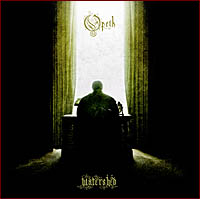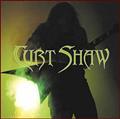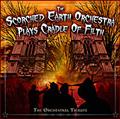OPETH (se) - Watershed (2008)

Label : Roadrunner Records / Warner Music France
Sortie du Scud : 6 juin 2008
Pays : Suède
Genre : Métal Fantasmagorique
Type : Album
Playtime : 7 Titres - 55 Mins
Chroniquer un album d’OPETH c’est le même genre de gageure que d’essayer d’expliquer par des mots le contenu d’un film de Tim BURTON ou David LYNCH. Des univers hermétiques et pourtant diablement ouverts sur des mondes emplis de couleurs, de sons, d’ambiances qu’il faut absolument pénétrer sous peine d’apporter un jugement en focale externe. Le pire qui puisse arriver d’ailleurs, tant les panoramas sont denses, les horizons lointains, et les personnages attachants.
Alors, passons la porte de Watershed, et regardons autour de nous. Car la force d’OPETH, c’est de garder une trame connue, et de lui apporter de menus changements, pour que l’auditeur retrouve ses marques sans croire qu’il est en terrain conquis, ce qui n’est jamais le cas.
Tout commence par « Coil », sublime mélodie éthérée sur laquelle Nathalie LORICHS, chanteuse de Folk suédoise vient poser sa voix douce et envoûtante. S’ensuit le titre le plus agressif de l’album, « Heir Apparent », lourd, Death à souhait, mais toujours avec cette patte magique qui rend la mixture douce à avaler. Un peu comme le poison qui permet à Roméo de rejoindre sa Juliette. « The Lotus Eater » est emblématique des choix de composition de Mickael, épique, complexe, doux, amer. La voix claire se cale sur des blast-beats furieux, créant un décalage permanent entre l’intention et l’audition, un chemin de croix parsemé de pétales de roses. « Burden » et son piano nostalgique qui s’échoue sur des harmonies doucereuses dominées par une guitare acoustique enchanteresse et un Rhodes très 70’s. Le chant fait le reste et les chœurs angéliques ont tôt fait de faire tomber le dernier bastion de résistance. « Porcelain Heart » reste sur la même veine, avec toutefois des riffs plus âpres, entremêlés de breaks d’une clarté rare, conte moyen âgeux d’un amour impossible entre une tempête et un arc-en-ciel.
La pièce de choix de l’album, « Hessian Peel » et ses 11mns25 passe en revue tout le catalogue des possibilités et combinaisons offertes par OPETH, avec une première partie délicate brisée au terme de quelques minutes par une vague de haine et de ressentiment, schéma qui se répète tout au long du morceau, pour mieux nous faire appréhender le fait que la vie est constituée elle aussi d’une alternance de joie et de tristesse. « Hex Omega » n’a plus qu’à offrir l’épilogue rêvé, et nous ramener à une réalité bien dure à affronter après pareil voyage.
On ne se remet jamais vraiment totalement d’une aventure avec OPETH. Car elle laisse en permanence une trace indélébile au fond de notre âme et de notre cœur. Un peu comme ces livres que PINK FLOYD et YES savaient écrire il y a déjà bien longtemps. Même refermés, les pages continuaient à voler dans notre mémoire.
Des grimoires d’alchimistes orfèvres de beauté. Et n’essayez pas de comprendre, lorsqu’on sait comment changer le plomb en or, on ne partage pas son secret.
On le garde jalousement.
Ajouté : Mardi 10 Juin 2008
Chroniqueur : Mortne2001
Score :     
Lien en relation: Opeth Website
Hits: 12249
|














